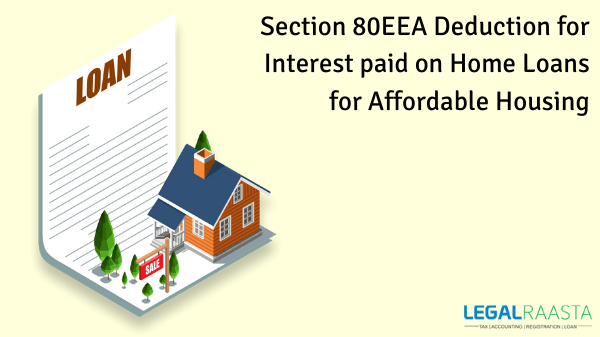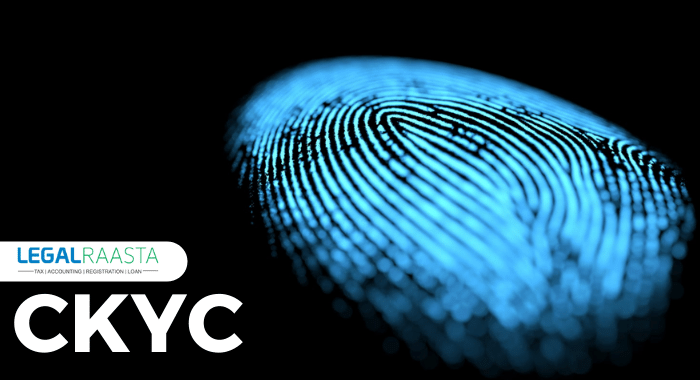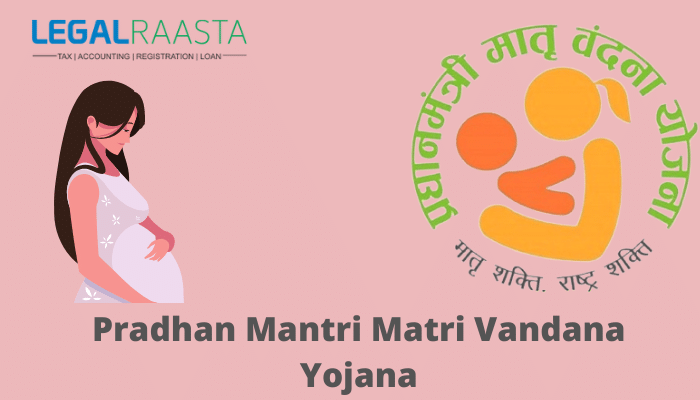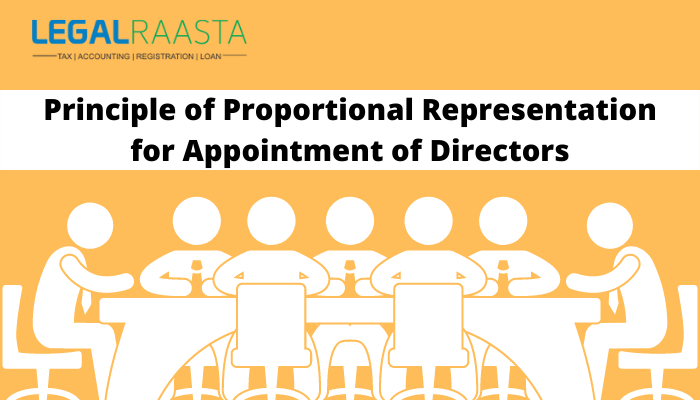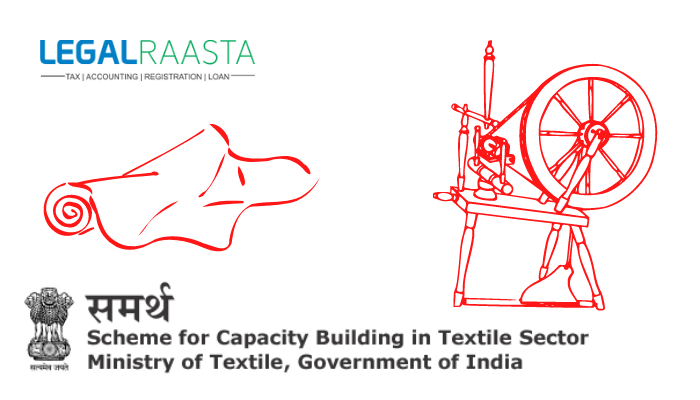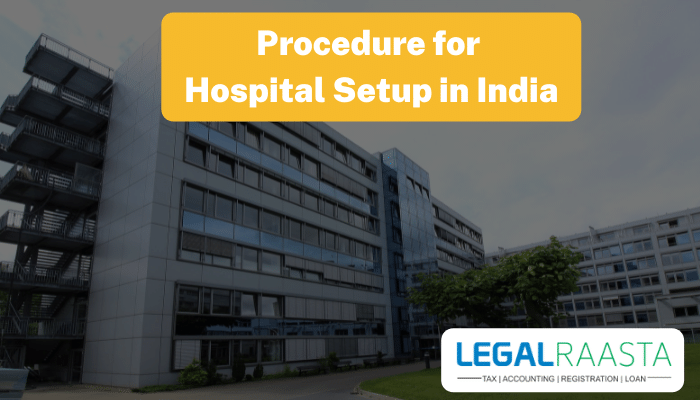Section 80EEA Deduction for Interest paid on Home Loans for Affordable Housing
Due to the major aim of government “housing for all”, the government is now taking steps in the arena of low-interest housing loans in the period of 1 April 2019 to 31 March 2020. Accordingly, the new section 80EEA which allows low interest for affordable housing loans has been inserted. The provisions in SECTION 80EEA allow a reduction of up to rupees 50,000 for interest paid by first-time homebuyers for loans approved by the financial institutions. This deduction can benefit you until you have paid the housing loan.
We will divide it into the following subheadings:
FEATURES OF SECTION 80EEA
- The benefits can only be claimed by only first time homebuyers as it states that at the time of borrowing the loan from a financial institution the borrower is not owning any residential property of his own
- The deduction of the interest which is allowed up to 50,000 rupees only can just be claimed for a home loan.
- The deduction limit of interest is rupees 1.50 lakh annually.
- Borrowers can claim the benefit only if their loans are sanctioned between 1 April 2019 and 31 march 2020.
- The benefit of section 80EEA can be claimed only by the individual, Hindu undivided family, or an institution cannot claim the benefits of interest reduction on residential property.
- In order to procure the benefits of section 80EEA an individual needs to borrow the loan from a financial institution and not from a relative or a family member.
- The value of residential property should not exceed rupees 45 lakhs to claim the benefit.
- The loan should be borrowed for buying the property and not for reconstruction, maintenance, and repair, etc.
- If a buyer is claiming deductions under section 80EE then he cannot claim the deductions under section 80EEA when he is borrowing the loan from a financial institution.
CONDITIONS OF SECTION 80EEA
- The taxpayer at the time of sanctioning date of the loan should not own any residential property so that he can claim the benefits.
- According to section80EEA, the size of the unit should not exceed 645sq.ft or 60sq meters if it is situated in metropolitan cities, in cities other than metropolitan cities the size of the unit has been increased to 968 sq. ft. or 90 meters.
- Bengaluru, Chennai, Delhi, Faridabad, Ghaziabad, Greater Noida, Gurugram, Hyderabad, Kolkata, Mumbai, and Noida are considered as metropolitan cities for this purpose.
- If there are joint owners of the property, then they both can claim the benefit of rupees 1.50 lakh annually under section 80EEA but they need to follow all other conditions.
- Section 80EEA doesn’t state that the property must be self-occupied. It allows buyers who are living in a rented house to claim benefits.
State the difference between Section 80EEA and Section 80EE?
The taxpayer claiming benefits under section80EE cannot claim the benefit under section80EEA i.e. reduction of interest in home loans up-to rupees1.50 lakh annually. This statement is mentioned in the law specifically.
| Particulars |
Section 80EE |
Section 80EEA |
| Property value |
Up-to Rs 50 lakhs |
Up-to Rs 45 lakhs |
| Loan amount |
Up-to Rs 35 lakhs |
Not specified |
| Loan period covered |
April 1, 2016, to March 31, 2017 |
April 1, 2019, to March 31, 2020 |
| Maximum rebate |
Rs 50,000 |
Rs 1.50 lakhs |
| Lock-in period |
- |
- |
State the difference between Section 80EEA and Section 24(b)?
Taxpayers can claim the benefit of deductions of interest under both, Section 24(b) and Section 80EEA, and increase their total non-taxable income to Rs 3.50 lakhs if they are eligible. However, deductions of interest for a home loan under Section 80EEA can only be claimed after exhausting the Rs 2-lakh limit under Section 24(b).
| Category |
Section 24(b) |
Section 80EEA |
| Possession |
Essential |
- |
| Loan source |
Banks or personal sources |
Only financial institutions |
| Deduction limit |
Rs 2 lakhs or entire interest* |
Rs 1.50 lakhs |
| Property value |
No specification |
Rs 45 lakhs |
| Loan period |
Loans have taken after April 1, 1999 |
April 1, 2019, to March 31, 2021 |
| Buyer category |
All home buyers |
First-time individual home buyers |
| Lock-in period** |
- |
- |
*While a discount of Rs 2 lakhs is allowed for a self-occupied property, the entire interest is allowed as a deduction in case of let-out property.
**Section 80C mentions specifically that buyers should not sell the property for five years, to claim deduction on interest. This is known as the lock-in period.
FREQUENTLY ASKED QUESTIONS
- Can NRIs claim a deduction of interest under Section 80EEA?
It has been interpreted by tax experts that even NRI’S can claim deductions of interest under Section 80EEA. The law doesn’t specify that in order to claim interest deductions it is not necessary whether the first-time-buyer or taxpayer is an Indian resident or not.
- If a person’s loan has been sanctioned before the amendment of section 80EEA, can he get the benefits of this amendment?
No, a person cannot claim the benefit of interest deduction on home loans as the provision states that the interest deduction of home loans will only apply to the people whose loans have been sanctioned before or after the period of April 1, 2019, and March 31, 2021.
- Are deductions under section80EEA applied for the purchase of plots?
No, deductions of interest rates under section 80EEA are not applied for the purchase of plots. It only benefits the buyers or taxpayers of housing units, including flats or apartments.
- For how long deduction under section80EEA available?
The deduction under section 80EEA are available throughout the loan payment tenure
- What documents need to be submitted to the company to procure tax deductions under section 80EEA?
The taxpayer needs to submit an interest certificate to the company to claim the benefits under section80EEA.
- Can a person claim interest reduction under section80EEA and section24 simultaneously?
Yes, a taxpayer can claim tax reductions under both the sections i.e. section80EEA and section 24 simultaneously and increase their total income without taxes up to rupees 3.50 lakhs if they are eligible. However, deductions under section 80EEA can only be claimed after exhaustion of 2 lakhs under section24.
Related Blogs:
NVP: Net Present Value And How To Calculate It?
AS 2 – Valuation of Inventories: Definition, Method, and Benefits
Dormant Company – Meaning, Benefits and Section 455 of Companies Act, 2013

